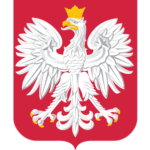W ramach VII Kongresu Polskiego Towarzystwa Komunikacji Społecznej, który odbędzie się od 22 do 24 września 2025 w Katowicach będziemy mogli wysłuchać prelekcji Gości zaproszonych przez Uniwersytet Śląski w Katowicach. Ich udział odbywa się w ramach Programu „Metropolitalny Fundusz Wspierania Nauki” #MetropoliaNauki, finansowanego przez GZM. Górnośląsko-Zagłębiowska Metropolia.
Profesor Rachel Gibson (University of Manchester
Profesor Rachel Gibson jest uznaną badaczką procesów demokratycznych w erze cyfrowej. Od 2007 roku związana z University of Manchester, gdzie prowadzi badania nad wpływem technologii cyfrowych na kampanie wyborcze i partycypację polityczną. W latach 2016–2019 kierowała prestiżowym Cathie Marsh Institute for Social Research. Jej projekty były finansowane m.in. przez Europejską Radę ds. Badań Naukowych, Brytyjską Radę ds. Badań Społeczno-Ekonomicznych oraz Australijską Radę ds. Badań Naukowych.
Gibson jest autorką licznych publikacji, w tym cenionej książki When the Nerds Go Marching In (2020), w której analizuje ewolucję kampanii cyfrowych w Wielkiej Brytanii, Australii, Francji i USA. W swoich badaniach wskazuje zarówno na demokratyzujący potencjał mediów społecznościowych, jak i na ryzyka związane z mikrotargetowaniem, manipulacją informacyjną czy rosnącą rolą technokratów w procesach wyborczych. Jej interdyscyplinarne podejście i wkład w metodologię badań politycznych zostały docenione m.in. przez British Academy.
Profesor Claes de Vreese (University of Amsterdam)
Profesor Claes de Vreese to jeden z najważniejszych europejskich badaczy komunikacji politycznej i cyfrowej. Zatrudniony na Uniwersytecie Amsterdamskim, kieruje Katedrą Komunikacji Politycznej w ASCoR oraz współtworzy AI, Media & Democracy Lab. Laureat prestiżowej nagrody Nils Klim Prize, członek Królewskiej Holenderskiej Akademii Sztuk i Nauk, autor ponad 300 publikacji naukowych.
Jego badania koncentrują się na polaryzacji, dezinformacji i kryzysie zaufania w demokracjach cyfrowych. De Vreese pokazuje m.in., że walka z dezinformacją bywa politycznie instrumentalizowana, a odporność na nią zależy nie tyle od kompetencji poznawczych, ile od motywacji i sympatii politycznych odbiorców. W swoich pracach zachęca do krytycznej refleksji nad granicami edukacji medialnej i nad tym, czy podnoszenie kompetencji cyfrowych rzeczywiście przekłada się na większe zaangażowanie obywateli.
VII Kongres Polskiego Towarzystwa Komunikacji Społecznej 2025 jest współorganizowany przez Instytut Komunikacji Medialnej UŚ. Więcej informacji o Gościach specjalnych oraz samym wydarzeniu dostępnych jest na stronie organizatora Kongres.
As part of the 7th Congress of the Polish Society for Social Communication, which will take place from September 22 to 24, 2025, in Katowice, we will be able to listen to lectures by guests invited by the University of Silesia in Katowice. Their participation takes place as part of the „Metropolitan Science Support Fund” Program – Project entitled „Prof. Claes de Vreese and Prof. Rachel Gibson – a world-class scientist in the field of political communication in the era of media transformation” #MetropoliaNauki, financed by GZM. Górnośląsko-Zagłębiowska Metropolia.
Meet the special guests of the PTKS Congress co-organised by our Institute!
As part of the 7th Congress of the Polish Society for Social Communication to be held from 22 to 24 September 2025 in Katowice, we will be able to listen to lectures by guest speakers invited by the University of Silesia in Katowice. Their participation is taking place within the framework of the ‘Metropolitan Science Support Fund’ Programme. #MetropoliaNauki, funded by the GZM. Upper Silesian and Zagłębie Metropolis.
Professor Rachel Gibson (University of Manchester)
Professor Rachel Gibson is an established researcher of democratic processes in the digital age. She has been affiliated with the University of Manchester since 2007, where she researches the impact of digital technologies on electoral campaigns and political participation. From 2016 to 2019, she directed the prestigious Cathie Marsh Institute for Social Research. Her projects have been funded by the European Research Council, the UK Economic and Social Research Council and the Australian Research Council, among others.
Gibson is the author of numerous publications, including the acclaimed When the Nerds Go Marching In (2020), in which she analyses the evolution of digital campaigns in the UK, Australia, France and the US. Her research points to both the democratising potential of social media and the risks of microtargeting, information manipulation or the growing role of technocrats in electoral processes. Her interdisciplinary approach and contributions to political research methodology have been recognised by, among others, the British Academy.
Professor Claes de Vreese (University of Amsterdam)
Professor Claes de Vreese is one of Europe’s foremost political and digital communication scholars. Employed at the University of Amsterdam, he heads the Department of Political Communication at ASCoR and co-founded the AI, Media & Democracy Lab. Winner of the prestigious Nils Klim Prize, member of the Royal Netherlands Academy of Arts and Sciences, and author of more than 300 scientific publications.
His research focuses on polarisation, disinformation and the crisis of trust in digital democracies. De Vreese shows, among other things, that the fight against disinformation is sometimes politically instrumentalised, and that resistance to it depends not so much on cognitive competence as on the motivations and political sympathies of the audience. His work encourages critical reflection on the limits of media education and whether raising digital competences translates into greater citizen involvement.
The 7th Congress of the Polish Society of Social Communication 2025 is co-organised by the Institute of Media Communication of the University of Silesia. More information about the Special Guests and the event itself is available on the Congress organiser’s website Congress.








